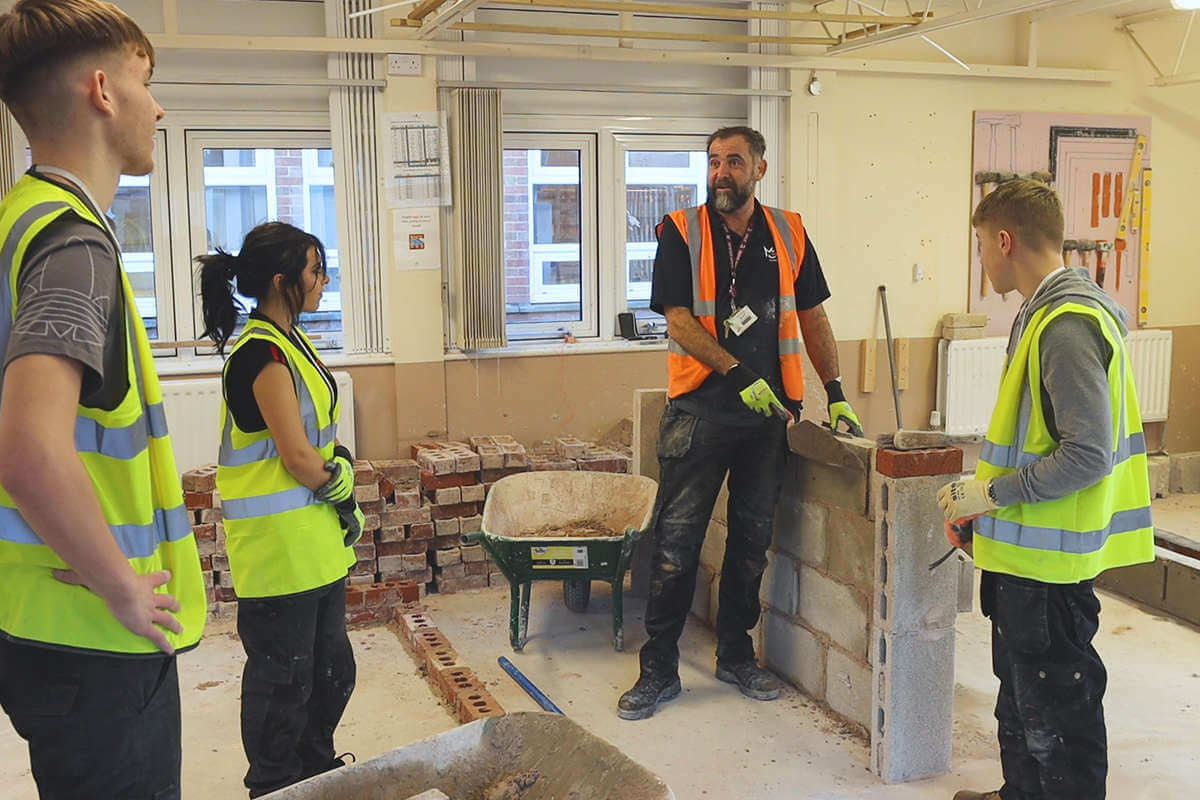Apprenticeships

T-Levels are new 2-year courses which are taken after GCSEs and are broadly equivalent in size to 3 A Levels. Launched in September 2021, these courses have been developed in collaboration with employers and education providers so that the content meets the needs of industry and prepares students for entry into skilled employment, an apprenticeship or related technical study through further or higher education.
T-Levels offer students practical and knowledge-based learning at a school or college and on-the-job experience through an industry placement of at least 315 hours – approximately 45 days.

Industry placements give students an opportunity to develop their practical and technical skills in a role directly relevant to their vocational course. They also give employers the chance to ensure that young people are developing the skills and experience that industry needs. You’ll spend 80% of your time in the classroom and 20% on a 315 hour industry placement with an employer to give you the skills and knowledge companies look for.
T-Levels are an alternative to A levels, apprenticeships and other 16 to 19 courses. Equivalent in size to 3 A levels, a T-Level focuses on vocational skills and can help students into skilled employment, higher study or apprenticeships.
Each T-Level includes an in-depth industry placement that lasts at least 45 days. Students get valuable experience in the workplace; employers get early sight of the new talent in their industry.
T-Level students spend 80% of the course in their learning environment, gaining the skills that employers need. The other 20% is a meaningful industry placement, where they put these skills into action.
T-Levels were designed with leading businesses and are now supported by employers of all sizes to give students the workplace skills they need to succeed.
Hundreds of employers – including Lloyds Banking Group, Nestlé, Yorkshire Water, Persimmon Homes and NHS Trusts across England – have hosted T-Level students on industry placements.
Many employers retain T-Level students on completion of their course and support progression within their business onto an apprenticeship or into another role.
Students can already apply for 16 T-Level courses. Over the next few years a total of more than 20 T-Level subjects will become available.
Eventually there will be something for everyone. The current T-Level courses that Macclesfield College offer are:
T-Levels will provide several progression options for students. These include skilled employment, an apprenticeship and higher education.
To help T-Level students progress into higher education, UCAS tariff points will be allocated to T-Levels.
UCAS points will only be allocated to the overall T-Level grade. Students must achieve at least an overall pass grade to receive UCAS points.
If you haven’t found the right course for you, then tell us about the course that you are looking for.